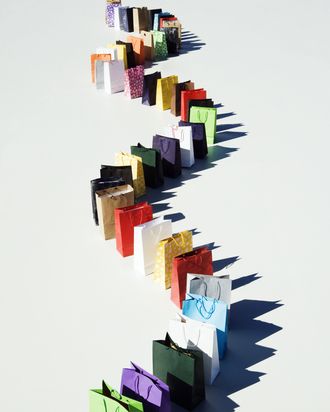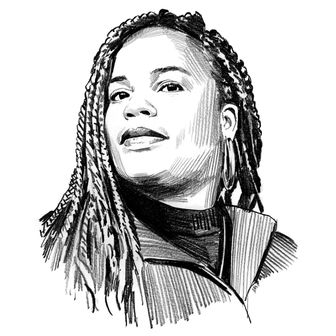
This month, Vanity Fair has a bonkers story about a Saudi princess, Princess Maha bint Mohammed bin Ahmad al-Sudairi, who tried to skip out on a $7 million hotel bill at Paris’s Shangri-La Hotel after occupying 41 rooms for five months. Nuts. But that 2012 attempt isn’t even the most notable part of Princess Maha’s story.
It turns out that a few years earlier, the princess spent $20 million during a Paris shopping spree. She hit all the boutiques — Dior, Dolce & Gabbana, and Louis Vuitton, where she even requested takeout burgers be delivered to the store mid-spree. (Girl worked up an appetite dropping all those millions.)
According to acquaintances, this behavior wasn’t abnormal, though the epic price tag exceeded many of her previous sprees. The princess is a legendary shopaholic. (The article recounts a trip to Geneva after which she needed four trucks to bring home all of her purchases.) And she’s not necessarily a discerning one: She’d spend as much money at Hermès as she did at a discount mall, Key Largo, where she racked up $125,000 worth of “downscale” sneakers, underwear, and jeans at a leisurewear boutique and then skipped out on the bill. Just the way she did at the upscale Paris boutiques she frequented. Now we get to the absolutely epic part: Rather than pay for all the goods she selected, Princess Maha had her assistants hand shopkeepers an IOU, printed on nice, embossed stationery, and went off with all the merchandise. She managed to buy $20 million of luxury goods without ever swiping an Amex. What on earth was going through her mind?
The Cut asked Grant Donnelly, a researcher at Harvard Business School who published a study on the psychology of overspending, to shed some light on her behavior. “I think the process of shopping is more alluring than the actual object we get. It is the action of consuming that gives us the emotional benefits — the anticipation of acquiring, the rush of purchasing, the fear and confidence of swiping your credit card,” he explained. “I think Princess Maha was addicted to the process of purchasing and not the actual items she was looking for. Buying things makes people feel powerful, like they can go out and accomplish something and make a significant change in their life.”
However, he notes, “this isn’t actually long-lasting and realized change — we quickly adapt to the items we get, continually searching for more and more.”
For all the items she bought, the article notes, she never opened or used them. She had rooms full of unopened boxes and bags. The writer’s portrayal is sympathetic —she was her husband’s third wife, and fell out of favor with his family after their divorce and his death. At one point her brother-in-law confined her to her palace after her spending antics got out of control.
Eventually, her bills were settled by her deceased ex-husband’s brother. But while her debts were wiped clean, her multi-million-dollar spending adventure absolutely earns her a place in shopping-spree history.





